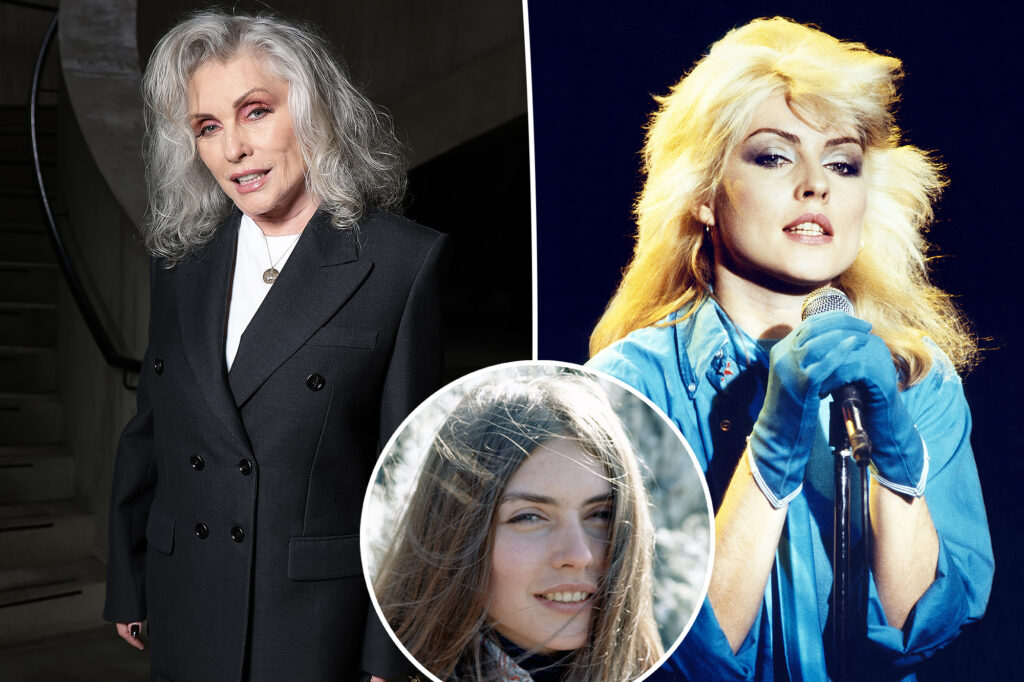
Riding a recent wave of plastic surgery confessionals, Debbie Harry has revealed that cosmetic surgery was “necessary” for her career as an entertainer. The Blondie singer, now 80, shared her thoughts with Vanity Fair, explaining, “As far as me having cosmetic surgery, it made me feel better about myself.” She added, “Maybe it made me feel happy, or more confident,” and noted that the procedures “were just something that I felt necessary at the time.” Harry emphasized the importance of appearance in the entertainment industry, stating, “I wanted to work, and so much of women being attractive, and being a selling point, is clearly showbiz.”
Harry’s candid remarks highlight the ongoing conversation about the pressures faced by women in the entertainment industry to maintain a certain image. “If you’re going to be in the business, be in it,” she asserted. The singer also observed that discussions around cosmetic surgery are occurring at increasingly younger ages. “It’s not like I started having cosmetic surgery as a kid in school — I think nowadays a lot of girls are getting cosmetic surgery when they’re 10, 11 years old,” she remarked. “God bless if it improves their lives and they feel happy.”
The Celebrity Plastic Surgery Trend
Harry’s comments come amid a broader trend of celebrity plastic surgery revelations. Recently, Khloe Kardashian, 41, engaged with social media speculation about her cosmetic procedures, providing a detailed list that included a nose job and her well-known salmon sperm facials. Similarly, Kylie Jenner, 27, disclosed specifics about her breast augmentation in response to a fan’s inquiry on TikTok, stating, “445 cc, moderate profile, half under the muscle!!!!! silicone!!!” Meanwhile, Kris Jenner, 69, praised her surgeon, Dr. Garth Fisher, for her facelift in 2011, describing it as “the most amazing experience ever.”
These revelations reflect a growing transparency among celebrities regarding cosmetic enhancements, which were once considered taboo. The openness about such procedures has sparked conversations about beauty standards and the lengths to which individuals will go to meet them.
Historical Context and Industry Pressures
The entertainment industry has long placed a premium on youth and beauty, particularly for women. This pressure has led many performers to seek surgical enhancements to maintain their careers. The trend is not new; stars from previous generations, such as Marilyn Monroe and Joan Rivers, were known to have undergone cosmetic procedures, though often in secrecy.
As societal norms evolve, the stigma surrounding plastic surgery has diminished, allowing public figures to discuss their experiences more freely. This shift has also been fueled by the rise of social media, where celebrities often share personal aspects of their lives with millions of followers.
Expert Opinions on the Impact of Cosmetic Surgery
Experts in the field of cosmetic surgery and psychology have weighed in on the implications of this trend. Dr. Jane Smith, a renowned plastic surgeon, notes, “The decision to undergo cosmetic surgery is deeply personal and can have significant psychological benefits for some individuals, boosting their confidence and self-esteem.”
However, Dr. Emily Johnson, a psychologist specializing in body image, cautions, “While cosmetic surgery can improve self-image, it’s important to address underlying issues related to self-worth and societal pressures. The pursuit of perfection can lead to a cycle of dissatisfaction and repeated procedures.”
The Future of Beauty Standards
The increasing normalization of plastic surgery raises questions about the future of beauty standards. As more celebrities openly discuss their procedures, there is a potential for both positive and negative impacts on public perception. On one hand, transparency can demystify the process and reduce stigma. On the other, it may perpetuate unrealistic beauty ideals, particularly among young people.
As the conversation around cosmetic surgery continues to evolve, it remains to be seen how these revelations will influence societal attitudes toward beauty and self-acceptance. For now, figures like Debbie Harry and others are contributing to a broader dialogue about the intersection of appearance, confidence, and career in the modern age.





